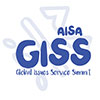GOLDEN RULES FOR A GOOD WORKSHOP
1. Organize! prepare a checklist 2 weeks ahead of time:
- Goals
- Activities
- Equipment
- Handouts
- Prepare an agenda or schedule – which can be flexible Send a letter to participants telling them what to bring
2. Workshop should:
- build in time for teachers to share with other teachers: Wine and Whine!
- be challenging – but activities should be designed for success. Open-ended problems or questions allow for this
- include a variety of formats to meet the needs of people who have different learning styles: exploration>instruction > practice > discussion
- revisit or review topics – include this in your schedule
3. Presenters should:
- be enthusiastic, be patient, have a sense of humor
- have a backup plan.
- go with the flow – if something goes wrong – deal with it!
- know the audience! (If local, conduct a pre-workshop survey of participants)
- let participants contribute their knowledge: e.g.. In a science workshop for elementary teachers, teachers contribute ideas about cross curriculum connections such as books, crafts, snacks that go with the science topic.
- start and end on time!
- say what you have to say and then get on with the activities!
- provide an agenda, state goals up front
- provide handouts. Two copies of a handout is a good idea. Allow one for notes and scribbles, and a fresh copy for the classroom. Handouts should contain up- to-date lists of equipment, web sites, book lists, etc.
- offer communication after the workshop, offer opportunities to interested participants.
4. Having 2 presenters:
- presenters have more confidence
- presenters can provide more assistance
5. Workshop should build self-esteem and confidence
- challenge the participants’
- participants should work in groups. “It’s easier to be frustrated together than frustrated alone.”
- open-ended activities again work here – with teams reporting at the end.
- If teams used logic and reasoning to arrive at their conclusions, then they are successful.
6. The workshop should be a mini model for research in the classroom.
- Don’t talk about it – do it with participants. Teachers don’t know that research is active, experimental and on-going!
7. Require participants to develop an implementation, or action plan.
- let participants help each other – have a brainstorming session on how they are going to implement in the classroom.
8. Icebreakers can be a good way for participants to get to know each other and gain comfort – but should – in the interest of time – relate to the workshop. Some examples:
- make and take – each participant gets a box with half of the items needed to make something. Have to find someone with the “other half”.
- People are paired up. They have to learn about that person including one unique thing – and introduce that person to the rest of the group.
9. Helping people see the need for your ideas:
- get them to your workshop! Send personalized invitations to each teacher – to their home address! Provide an advance copy of workshop highlights.
- role play a poor science teacher and give participants an assignment to define science terms in a text chapter. After 30 seconds of incredulity on their parts, explain how research is different.
- quotes from the most respected and well-known scientists like Einstein, for example, can be powerful motivation: “No number of experiments can prove me right, but it takes only one to prove me wrong”.
- each person writes down one memory from his or her days as a K-12 science student.
10. The bottom line:
- timing – hold the workshop during regular school hours if possible – but never right after school!
- treat participants like professionals
- Creature Comforts: Food!
- incentives are important: freebies, release time, door prizes, stipends, credit, discounts, even a certificate and definitely good clean readable handouts! Going away with a finished product is nice
- stress relief? Especially for technology related workshops! “I blew it” coupons, “something unexpected is going to happen” buttons.
- Laughter
11. A few notes on the hostile or reluctant participant: These folks can be hecklers and run a workshop if they get the upper hand.
12. Allow participants to state why they came:
- even if it a negative reason. This gets it out of the way. A good trick that stops the hostile participant from being disruptive is to get a positive comment from the people on either side of him/her. This isolates the heckler and keeps him/her quiet.
Sometimes the mildly hostile participant is so because they know too much about the subject to find the session useful. Get them to be your assistants!
